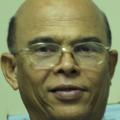Burmese people are so exciting to keep an eye on the UN
secretary-general Ban Ki-moon's July 3-4 visit to Burma. Ban has told reporters
at the UN headquarters in early June that he was prepared to visit Burma.
"Promoting democratization, including the release of Daw Aung San Suu Kyi and
other political prisoners, has been one of my top priorities and it will
continue to be my top priority," Ban said then. People are really excited to
know about Mr. Ban's top priorities on Burma question.
The United
Nations' special envoy to Burma Ibrahim Gambari has ended a two-day visit (26-27
June) to Burma after meeting the country's foreign minister to prepare for a
trip by Secretary-General Ban Ki-moon, the ruling junta's state television and
newspaper said. State television reported on 27 June that the United Nations'
special envoy met with Foreign Minister Nyan Win in the capital of Naypyitaw and
discussed preparation for a visit by the UN Secretary-General.
"The
secretary-general looks forward to returning to Burma to address directly with
the senior leadership a broad range of issues, including longstanding concerns
to the United Nations and to the international community," a spokesperson told
reporters at the daily press briefing held at the UN headquarters in New York on
29 June.
for a three-day visit - 30 June to 2 July - to meet Japanese Foreign Minister
Hirofumi Nakasone to discuss Aung San Suu Kyi's trial and North Korea's nuclear
and missile threats, according to the Japanese Foreign Ministry.
On 30
June, the United Nations Secretary General Ban Ki-moon called on Burma's
military-run regime to free all political prisoners, including opposition leader
Aung San Suu Kyi. The UN Secretary General, in Japan for a three-day visit, will
travel to Myanmar/Burma on 3 July in a diplomatic endeavor to win the release of
the 64-year-old Nobel Peace Prize laureate, who has spent more than 13 of the
past 19 years under arrest without trial.
Aung San Suu Kyi's trial has
raised outrage from her local and international supporters, who say the military
regime is using the John Yettaw's story as a pretext to keep her in custody
through elections scheduled for year 2010. Burma's military junta has planned a
general election for 2010, the first since 1990. It is widely believed that
junta wishes Aung San Suu Kyi, 64, out of the political stage during the run-up
to the polls.
Aung San Suu Kyi's trial, being conducted at a special
court set up in Insein Prison, is scheduled to resume on July 3, the same date
of Ban's arrival, according to the NLD source.
After talks with
Japanese Foreign Minister Hirofumi Nakasone, Ban told reporters in Tokyo on 30
June that he was aware of concerns about his July 3-4 visit coinciding with the
trial of Aung San Suu Kyi, the main opposition leader, who has been under house
arrest for several years.
"It may be the case that the trial happens
during my visit to Myanmar (Burma). I am very much conscious of that," Ban told
reporters. "I consider that three of the most important issues for Myanmar
cannot be left unaddressed at this juncture," he said.
According to Ban
Ki-Moon, the first will be release of all political prisoners, including Daw
Aung San Suu Kyi. The other two points were the resumption of dialogue between
the military rulers and opposition and the creation of conditions favorable to a
trustworthy election, he added.
For Burma, there can be no proper
consideration of a democratic system while the democracy icon and some 2,100
fellow political leaders remain isolated from the political way of life and
languish in prisons of the junta. Aung San Suu Kyi's service is the quintessence
not only of a leader of a nation, but of the very basic code of freedom and
democracy itself. It is an irony that she, as the freedom icon of our
generation, is put through such inhumane treatment while the autocratic military
talks of democracy to the world and to its citizens.
The pro-democracy
movement of Burma has urged the international community to have responsible
plans in place of a situation heat up in the approaching days. The area around
the prison compound is heavily guarded and roads have been blocked off, as the
military regime fortifies itself for a possible protest at the treatment of the
democracy icon and Nobel Peace Prize laureate.
Looking back into near
past, around 70 Burmese were killed and hundreds were imprisoned following the
last major public demonstrations, known as the Saffron Revolution, broke out in
September 2007.Currently, there are over 2100 political prisoners student
leaders, ethnic leaders, members of parliament, influential monks and many more
intellectuals in various prisons in the military ruled country.
People
of Burma have been asking for a concerted effort from major powers like India,
China, the US and the EU, as well as regional bodies like ASEAN, working
together to find a solution to this unsustainable situation. First, the UN
should provide the most effective means of solving out this crisis. It has to
work to defuse current tensions and to secure the release of all political
prisoners, including Aung San Suu Kyi. Secondly, an emergency session of the
Security Council should be convened without delay discussing the situation in
Burma and to decide upon what collective action can be taken in an effective
manner.
This is precisely the time the UN must lead, to rally all powers,
and to show the world it is not organized to sit absentmindedly by an extensive
injustice is perpetrated on the Aung San Suu Kyi and on the people of Burma.
Pro-democracy people around the globe call for immediate action through the UN
to put an end to this outrageous action on the part of Burma's military junta.
(Note: You can view every article as one long page if you sign up as an Advocate Member, or higher).





